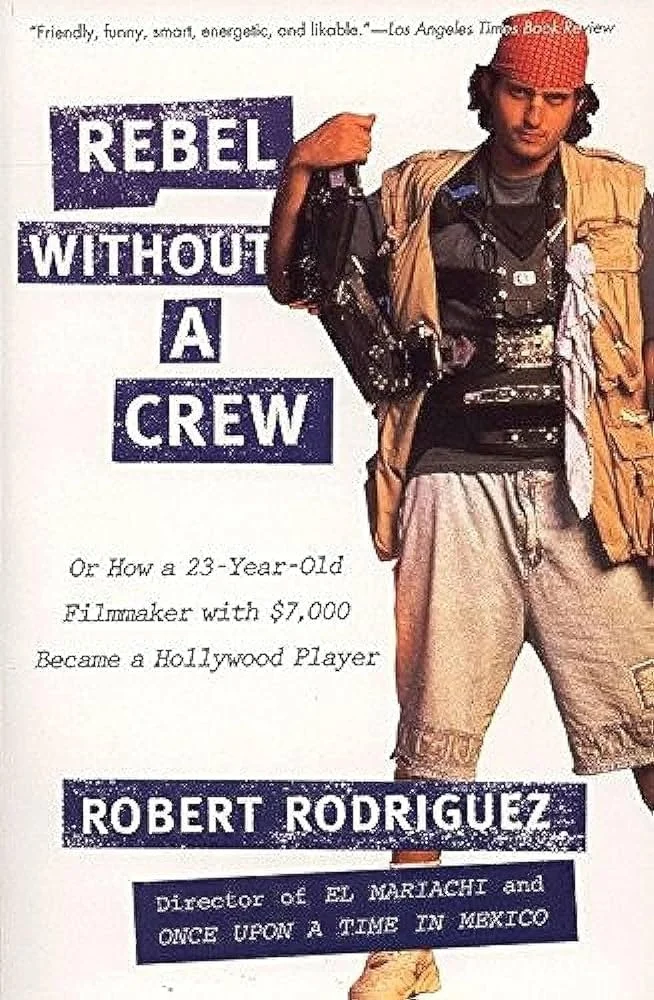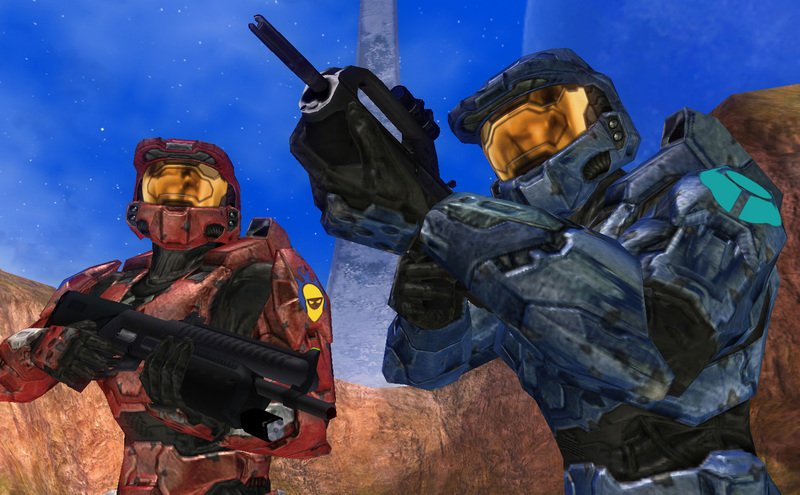Short Movie: Human After All
When I came back to Italy after finishing the single year of film school that brought me to Prague for the first time, I had no idea what to do next.
I had learned a ton in school, but the short movies that I produced while there were rough, to say the least. I did not have a real portfolio, and I was still living in Cagliari, a city without anything even resembling a movie industry. What I was still doing was writing about video games for various Italian websites and newspapers: I had paused that through film school, but immediately started again once back home. But that was never the whole plan. I was as determined as ever to make movies.
I just had absolutely no idea how that would happen, and in a short trip to Rome, interning for the Gambero Rosso satellite channel, I realised that I could not have a lot to do in that scene for a long time: I was specifically told that I was too young to have any chance to have a say in an organisation like that one. I had a similar feeling chatting with a producer in a big Italian production company: I came back from Prague with ideas, drive, and determination. The person who was interviewing me wanted obedience, deference, and meekness. You know, the ideal qualities for a creative environment.
Seniority was more important than good ideas in Italy; so I had to find a different avenue.
While spending days reviewing video games and being confused about my future, my imaginary mentor was Robert Rodriguez, the co-patron saint of 90's indie film (with Kevin Smith, Quentin Tarantino, and Richard Linklater, and probably more I'm forgetting).
Rodriguez's credo of "working with what you have" to make a film that could be put together with a tiny budget while still having visual interest just made sense. So I started to think - what do I have around me? What do I have access to?
I did have some interesting things in my quiver.
I had just met a bunch of people from all over the world in school, all passionate about filmmaking, and I always looked for ideas to celebrate the idea of the global without lazily linking it to financial systems. Plus, I realized video games, something I knew a lot about, were one of the things I could work with.
At the time the idea of Machinima - making videos by using video games as a production tool - was already relatively popular, but not exactly mainstream: Red VS Blue, a series completely shot inside of Halo, was relatively well-known, and it felt like the beginning of an interesting scene. What I had never seen at the time was someone mixing machinima and real life; to show how playing video games affects real life, and, especially, connects people, even if at the time millions of people were doing that every day already.
What if I could mix videogame footage with live-action scenes to show the way so many people found community and purpose in virtual worlds?
Red VS Blue, pioneer of machinimas series.
I wrote some ideas for a feature based on that concept, and started writing a script. And I came back to Prague specifically to develop this project.
I knew that I had to show how it would look because there were no real precedents to it; so I wrote a short movie as a proof of concept to show how my feature would look like, and to present it to possible producers. I called the short Human After All.
I needed to find a game that could be the star of the short movie. At the time, I thought my project would use Team Fortress 2 as its main machinima element, but that game seemed a bit too complex to use in a short. Halo 3, on the other hand, seemed perfect: it's a relatively straightforward first-person shooter, and it's one of the first games to allow the players to save a replay of a multiplayer game, and then give them the option to tweak the camera movements of the replays; it did not allow to export the replay footage, but that was the best I could work with at the time.
Landing back to Prague with this concept in my head, I was quite filled with energy, and I started to make interesting connections in the city. I started doing some script reading for a local production company, at the time looking to produce new independent projects in what looked like a booming industry I was in a city that I lived in for a year, but where most of the people I spent my time with during that school year already left.
This project was in many ways a catalyst to build a new network: looking for collaborators, I ended up connecting with the Creative Branch of the Prague Expat Community at the time: I discovered that the city had a surprisingly active English-speaking theatre community. I met Jim, Jeff, Mel James, and Mark, people who not only became collaborators but also lifelong friends, and, quite surprisingly to me, they were all game to be part of the project.
Looking back, I realise that 2007-2008 was incredibly eventful for me. In a bit more than a year, I met the large majority of all the people I still am close to to this day in my Prague life. And many of them contributed to this film.
James Lambert and Julia Scarfaru.
In a relatively short time, I put together a solid team to make the short happen: a bunch of friends - Marketa, Dovile, Steve, Julia, Sanda, and Jennifer - helped behind and in front of the camera. My old film school lent us equipment to shoot the short even if I was not a student anymore, which was quite great as well. It was a fun shoot, done with no budget at all, except for some budget for food because that is non-negotiable. Snacks are mandatory regardless of budget. The most complex thing to do was to find an office that would let us use their premises for free and Jennifer, who acted as production manager, made it happen with no problem.
Shooting the video game parts was also quite surreal: myself, the lead actor Mark, and my ex-colleague from school Chris, who was visiting Prague at the time, played the game and "acted out" the scenes in-game; then, I used the replay editor to frame every section properly and then captured the screen with the same camera I used for the rest of the shooting. There was no easy (and/or cheap) way to directly capture footage at the time. Somehow, it worked quite decently.
Finally, we had some help with dubbing, and my friend Massimo helped compose and record a pretty kick-ass soundtrack to drive the action.
The replay editor in Halo 3 allowed for pretty cool shot designs, or to just shamelessely copy Sergio Leone.
Once the short was completed, it was seen by basically... no one, by design. I wanted to use it as proof of concept to pitch it to possible production companies, but I wanted to make sure the idea would not come out. And, surprisingly, that worked out. I sent it to my supervisor at the production company I collaborated with at the time, and he agreed to help me develop it. At that point, my idea shifted from making it into a series rather than a feature, but still with the same principle.
I wrote a pilot, and the production company presented it to a couple of US companies during a "pitch tour" in LA. It did not land anywhere; the idea was probably too vague, and at that point, around 2009, the production world was recovering from a massive financial crisis. Plus, I had zero real filmmaking experience to show at the time, which made things harder.
The experience was incredibly useful, in any case. And, in time, other shows and movies have been born from similar ideas. My pilot was similar to the excellent Silicon Valley show - sometimes, ideas are in the air, and multiple people catch them, but only one can make it happen. Since then there have been some works specifically based around the crossover between games and reality: the one that comes to mind is Dad of Light, on Netflix, a Japanese show about the ways that the massively multiplayer online game Final Fantasy XIV brings a son and his dad closer. Seeing that, I realized that my best avenue would have probably been to directly approach a video game company with the series idea, rather than trying to make it happen through a film/TV prodco.
I am sharing this now because it's not a very "original" concept anymore; yet, I'm still playing around with the idea of telling stories about the way video games and real-life interact with each other. It's one of the biggest things shaping the world right now; and, in many ways, one of the least understood, even as the word metaverse now has become mainstream.


